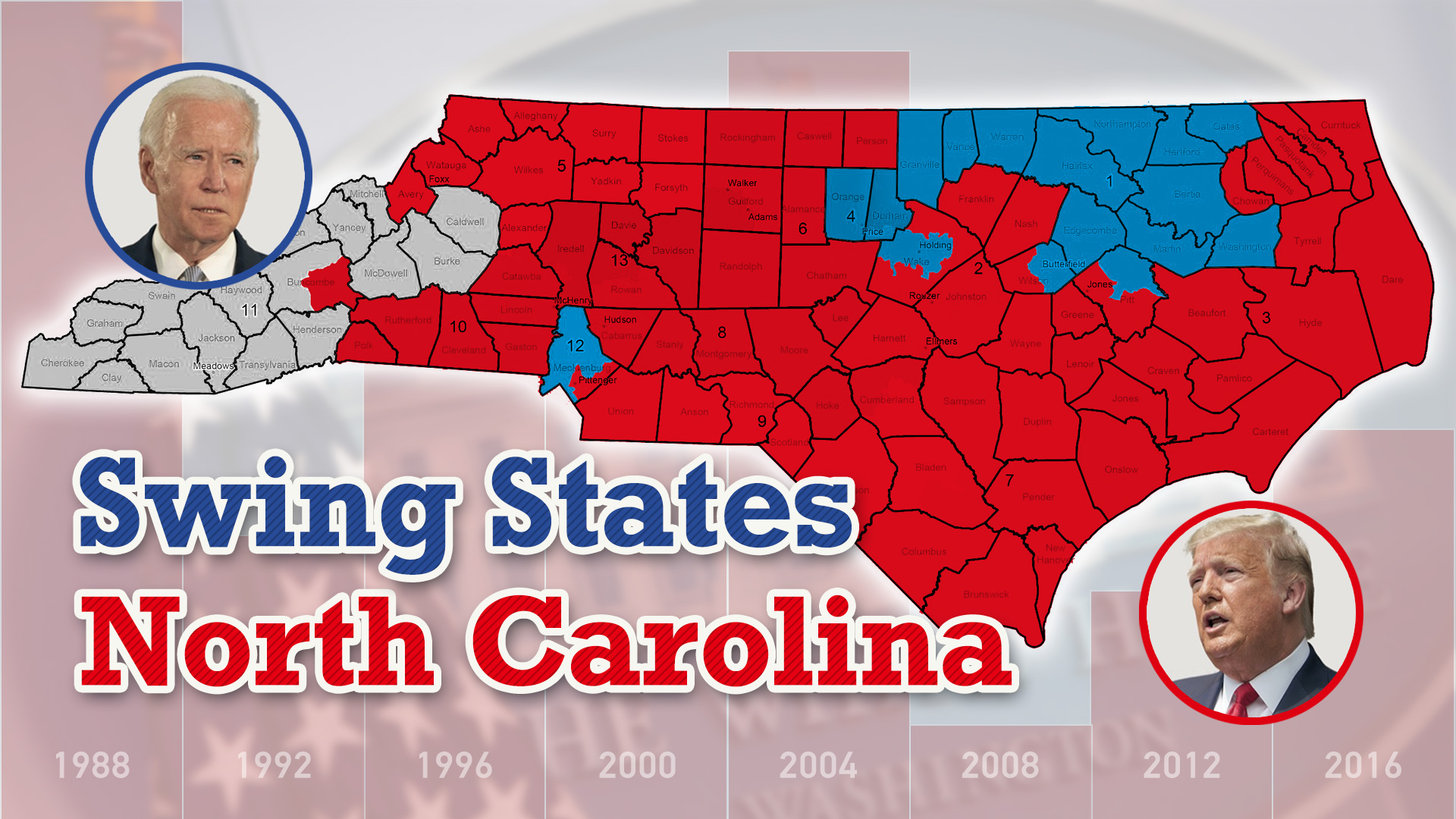
In 2008, Democrats made a decisive breakthrough in North Carolina. Disrupting an impressive Republican record for carrying the state seven times in a row, then Democratic Nominee Barack Obama finally secured its 15 electoral votes. But that victory proved to be short-lived for the blue camp. Obama lost it in his reelection and Hillary Clinton did so again, leaving a huge question mark over the state's allegiance in the 2020 election.
Why does North Carolina matter?
That North Carolina is viewed as a critical state is best exemplified by its divisive partisan breakdown. From occupying the office of governor to firmly controlling the state Supreme Court, Democrats see the state as their own bulwark. But the narrative would be flipped if one looks at it from another angle. With an unrelenting capture of the state in general elections, a firm grip over the state legislature and an overwhelming seizure of North Carolina's seats in Congress, the Republican Party no doubt considers it as a red base.
Also reflecting this divisiveness is the state's recent polling for the November race. Previous polls have from time to time placed either candidate at a narrow lead over the other. While Joe Biden came out on top more frequently and according to the latest CGTN polling average, he is ultimately taking a lead over Trump, the less-than-one-percentage-point margin indicates that the Republican campaign has the potential to spin the results anytime.
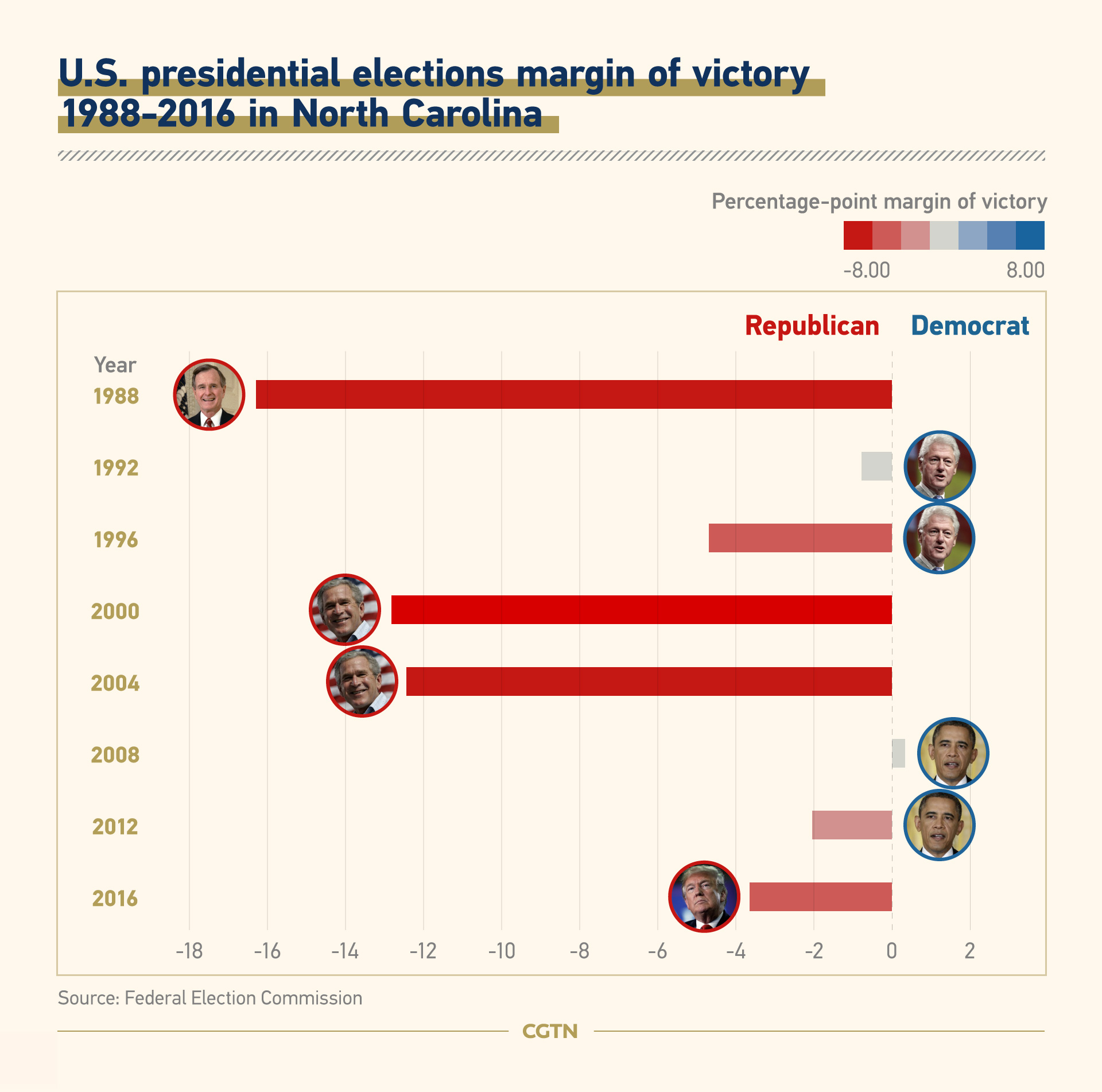
Who are the voters?
While North Carolina has roughly 400,000 more registered Democrats than their GOP counterparts, the real deal here is a fast-growing group of independents that now makes up one third of the state's electorate.
In recent years, a massive population boon has not only contributed to the expansion of this non-partisan voter base, but also drastically widened North Carolina’s electorate. About 1.8 million voter registration forms have been filed since the 2016 election, making the number of new voters accounting for 25 percent. These changes are indicating a 2020 result that could be vastly different from the previous election.
What to watch in 2020?
It is widely agreed that North Carolina can easily determine who enters the White House. Both candidates are doubling down on their bets to gain an upper hand in the state. While the Trump campaign has been holding an array of in-person rallies that risk the spread of COVID-19, Biden's team has been investing heavily on television ads, which costs the campaign much more money than the opposite side.
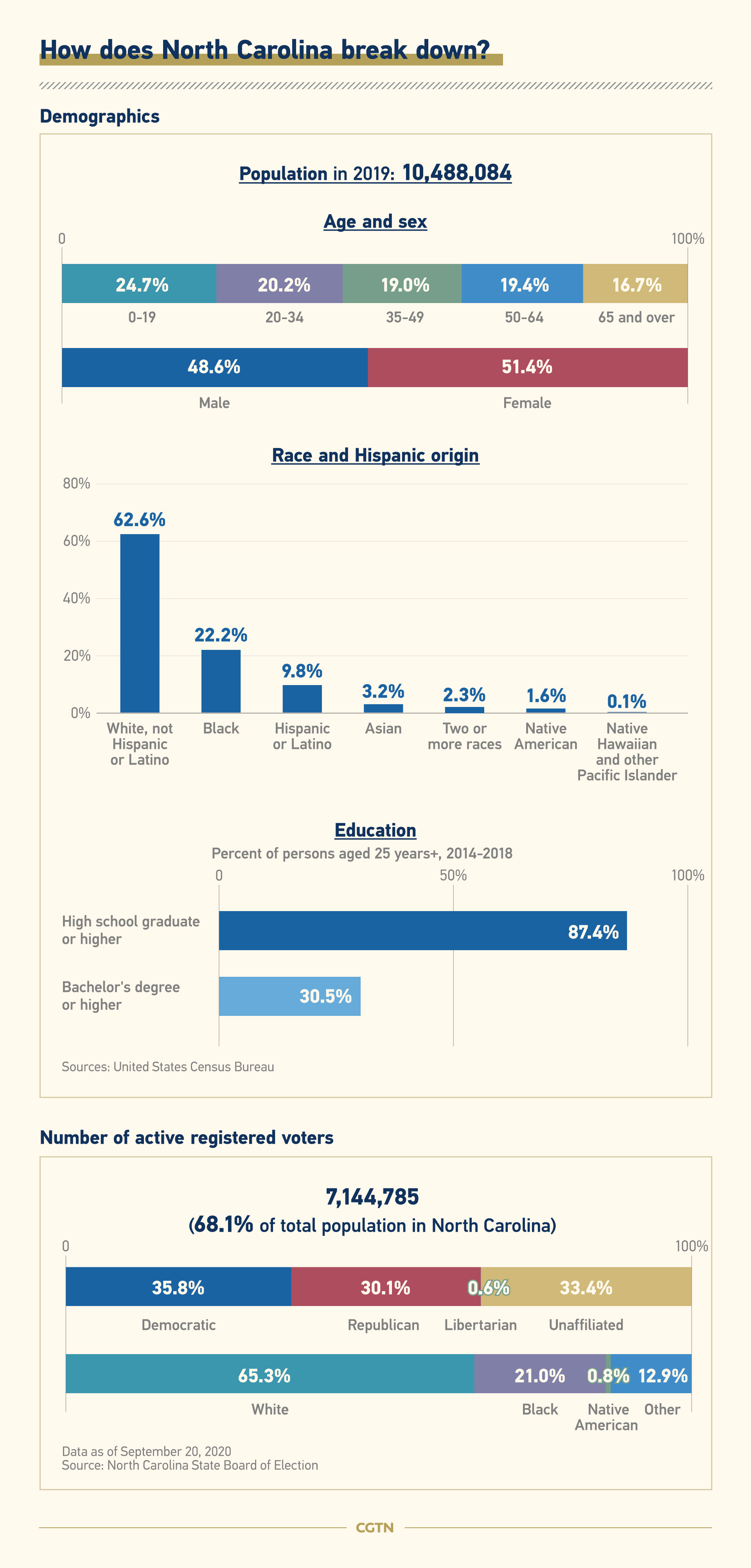
Social-economic breakdown
Half of North Carolina's new voters live in its four biggest counties. Consistent to a nationwide trend in which urban voters are more likely Democratic supporters, these mostly non-partisan new voters are now moving the state to the blue.
Many of the rural counties in the state have been flipping from blue to red between 2008 and 2016. Support for Trump among farmers who can bank on strong trade deals is especially discernible, which is a status his team is focusing on keeping. Democrats, on the other hand, are targeting large, rural minority communities who may feel they've been abandoned because of the party's left-ward surge.
COVID-19 has taken a toll on many business owners and working-class people in North Carolina's suburban areas. Trump's mishandling of the pandemic has shaken this base's support for him.
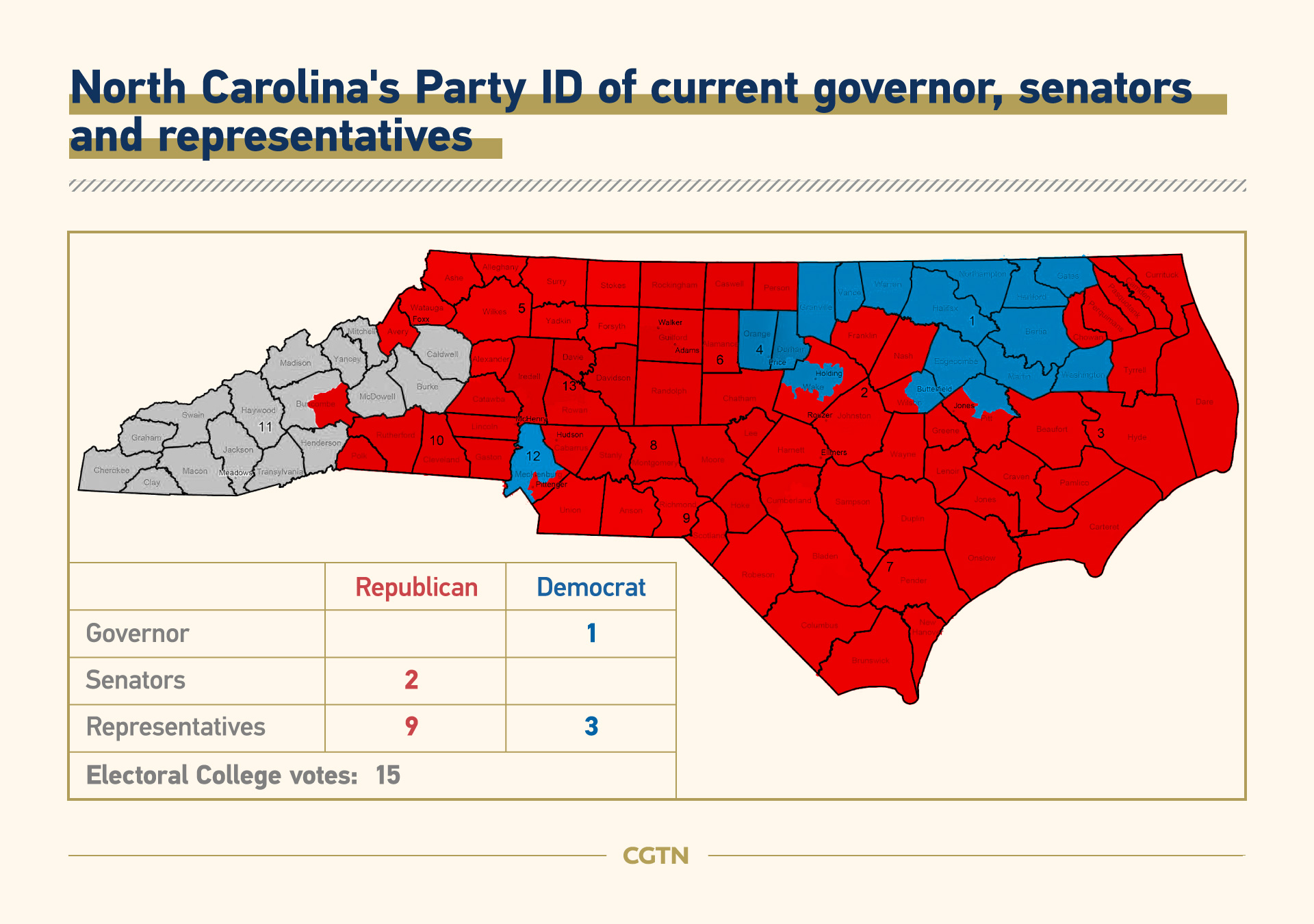
Black voters
Black voters make up 22.2 percent of North Carolina's population, a relatively high proportion that makes them an electoral group weighing much heavier than in other competitive swing states.
Polls consistently indicate that around nine out of 10 Black Americans back Biden. As is the case across the U.S., the Democratic nominee needs a high turnout among this group in North Carolina, especially when it is expected to be closely contested. For his campaign, the idea is to match the level of turnout with that in 2008, which helped substantially in Obama's victory.
Both the nationwide anti-racism movement and Biden's constant appeal to Black voters are bolstering that prospect. Meanwhile, the president's displayed empathy for police officers could also be stimulating an overwhelming number of them to cast their ballots on Election Day.
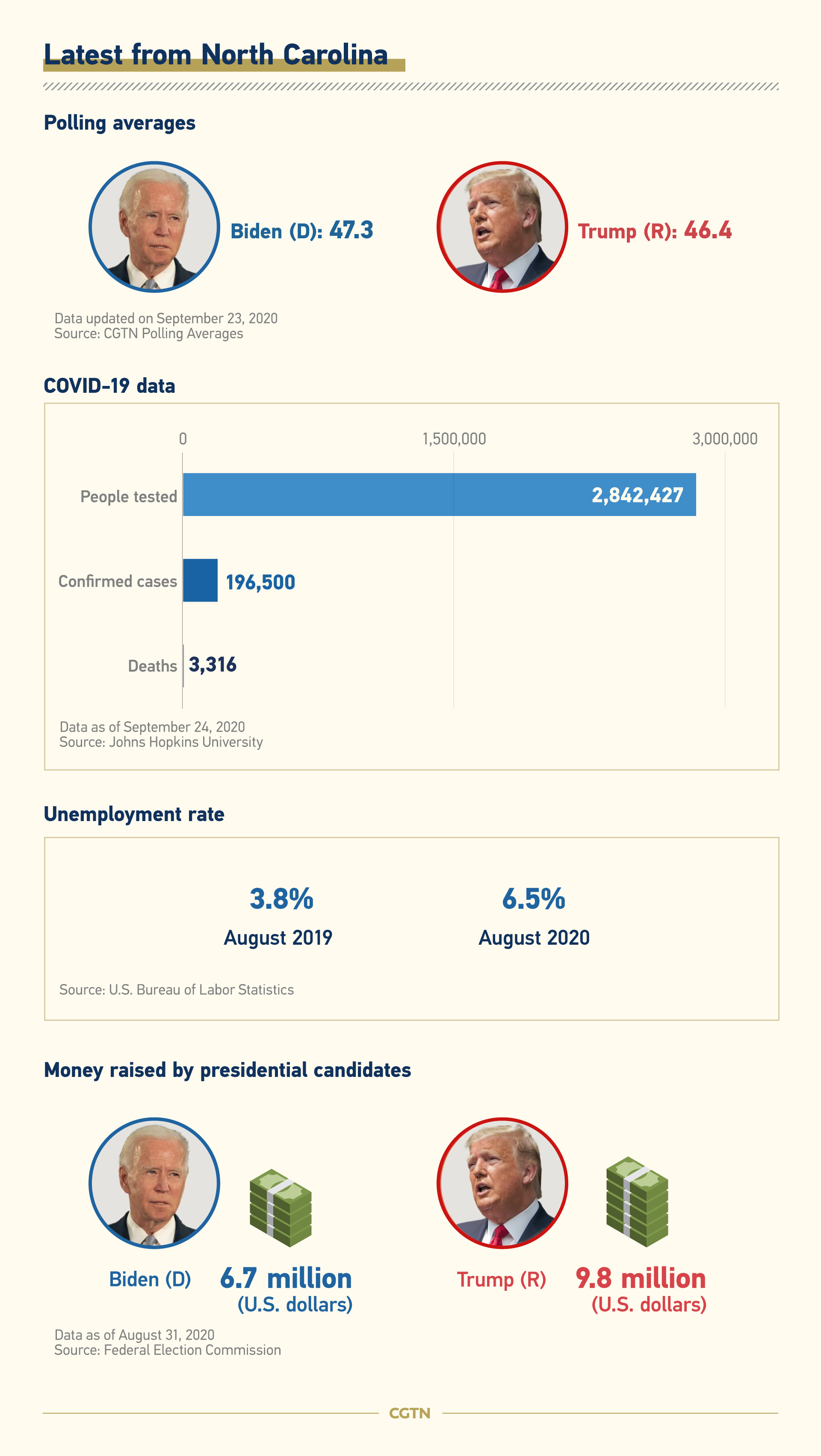
Supreme Court nomination
The death of Supreme Court Justice Ruth Bader Ginsburg has triggered a Republican rush to nominate a conservative jurist for the vacancy before Election Day.
Polls in North Carolina have indicated that Republican Senator Thom Tillis is struggling in his bid to get reelected in the November congressional race. In recent days, Tillis' approval ratings dipped even further, which according to analysts, could be because his support for a Senate confirmation vote on the president's impending nomination has alienated some Republican voters while also discouraging independents from voting for him.
Both Tillis' and the president's propensity to further polarize the November elections by consolidating the right may not serve them well, as an increasing number of both old and new non-affiliated voters are pushing North Carolina to shift from what is an arguably right-leaning state to a center one.